
Politics
20:46, 16-Aug-2018
India's three-time prime minister Vajpayee dies at 93
Updated
20:20, 19-Aug-2018
CGTN
01:00
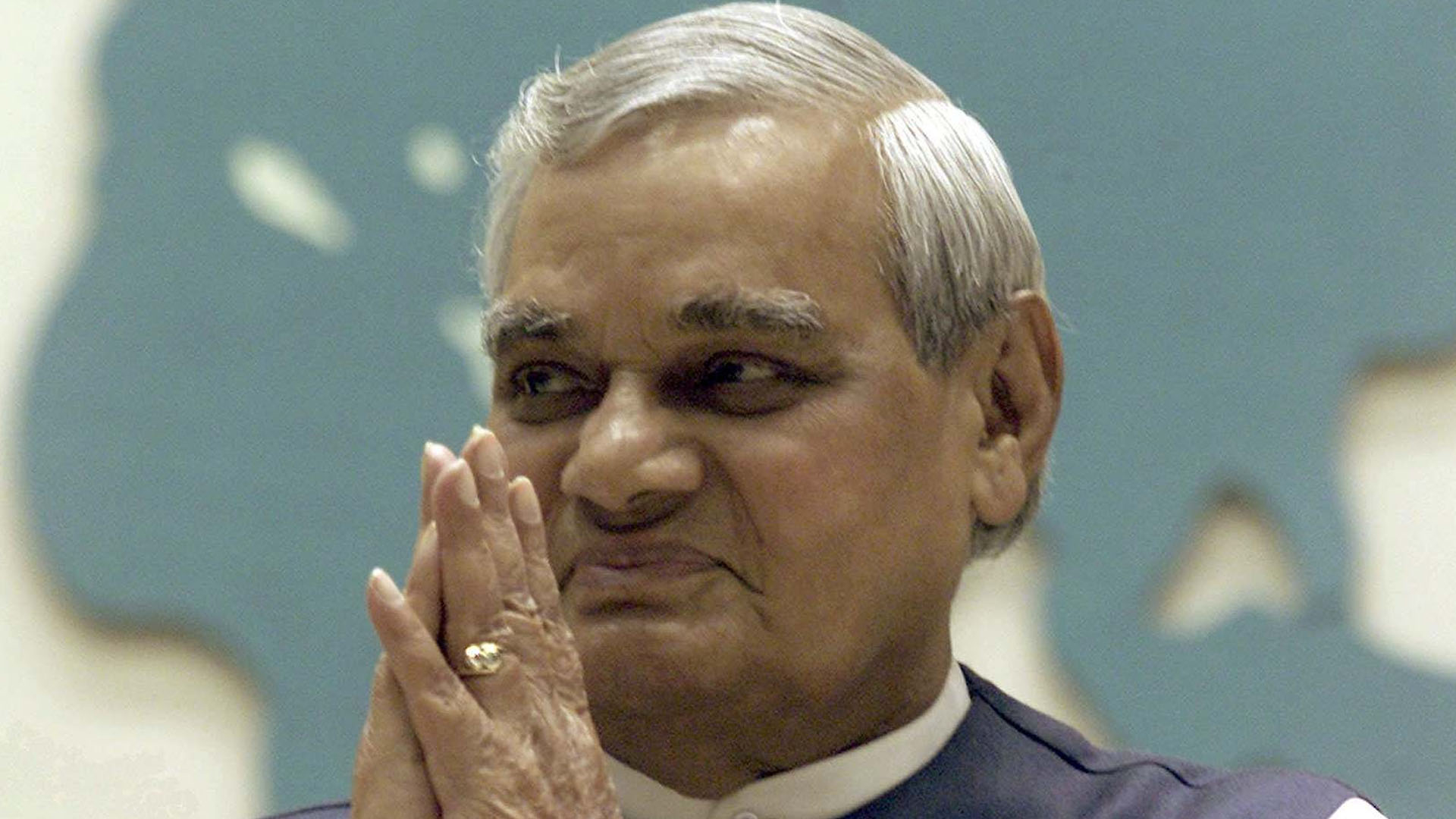
Former prime minister of India, Atal Bihari Vajpayee, died on Thursday, said a statement issued by the hospital where he was admitted.
Vajpayee, who belonged to the Bharatiya Janata Party (BJP), the main ruling party in the country, was 93.
“Atal Ji’s passing away is a personal and irreplaceable loss for me,” Modi said in a tweet Thursday, using a Hindi-language honorific.
“It was Atal Ji’s exemplary leadership that set the foundations for a strong, prosperous and inclusive India in the 21st century.”
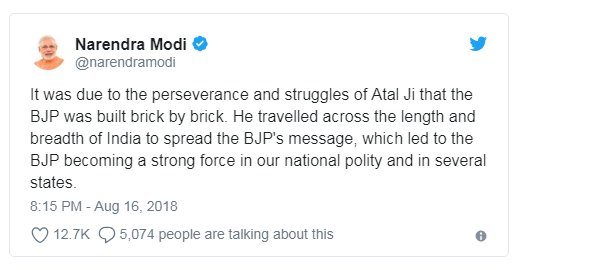
Photo via Narendra Modi's tweet
Photo via Narendra Modi's tweet
The former premier was treated at the All India Institute of Medical Sciences (AIIMS) in Delhi, where he was admitted nine weeks ago with health complications.
“Unfortunately, his condition deteriorated over the last 36 hours and he was put on life support systems. Despite the best efforts, we have lost him today,” AIIMS said in a statement.
“We join the nation in deep mourning this great loss.”
Vajpayee's mortal remains have been shifted to his official residence in Delhi, and the last rites and rituals will be performed in the Indian capital city on Friday.
Three-time prime minister
Vajpayee was born to Krishna Devi and Krishna Bihari Vajpayee on Dec. 25, 1924, in Gwalior.
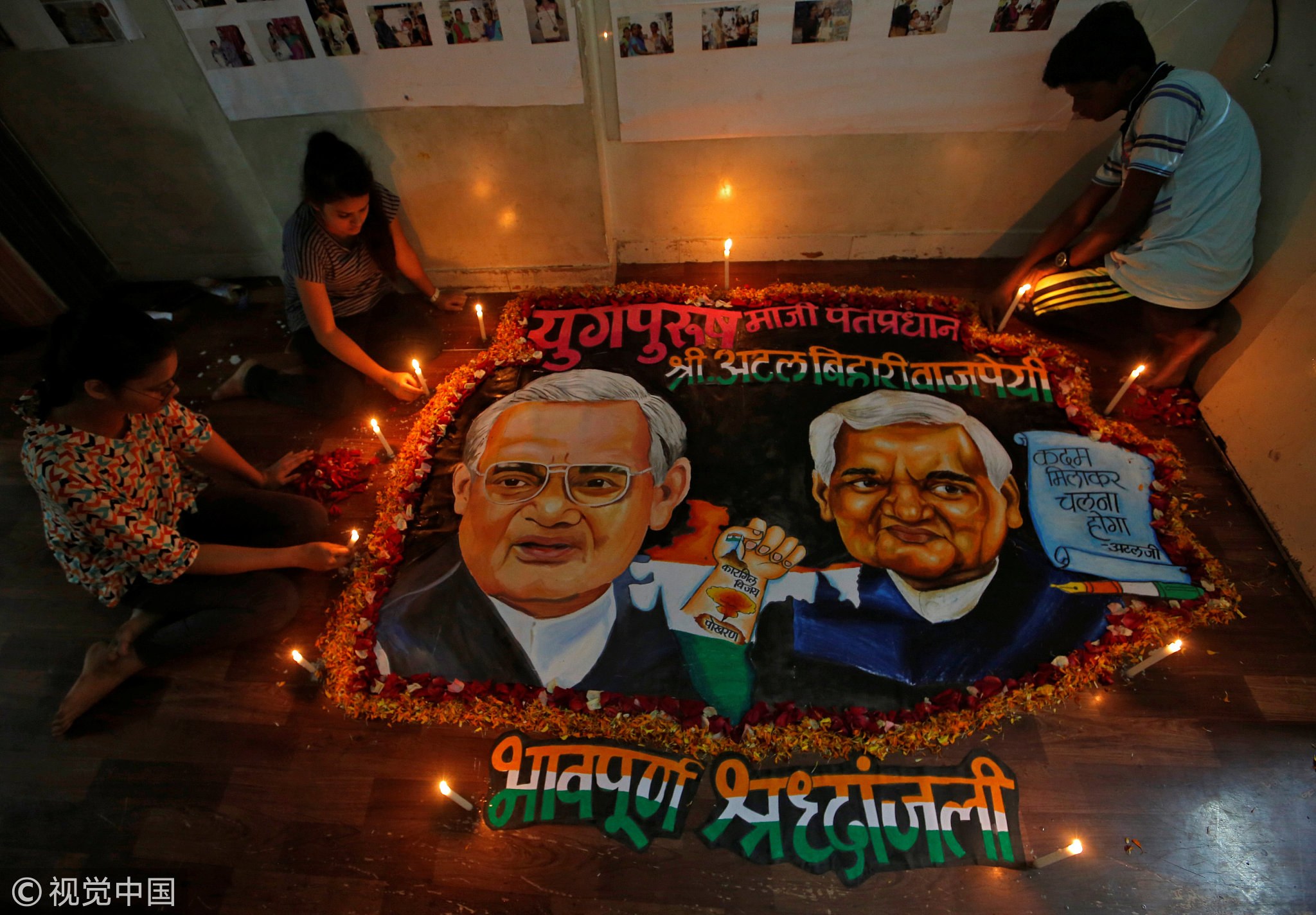
Students place candles around a painting featuring India's former prime minister Atal Bihari Vajpayee to pay him homage in Mumbai, India, August 16, 2018. /VCG Photo
Students place candles around a painting featuring India's former prime minister Atal Bihari Vajpayee to pay him homage in Mumbai, India, August 16, 2018. /VCG Photo
Vajpayee never married but still raised a child, Namita Bhattachariya, the daughter of a longtime friend.
Vajpayee served as Indian prime minister thrice – first in 1996 for only 13 days, and then for two consecutive terms between March 1998 to May 2004, out of which the first tenure lasted 13 months.
01:49
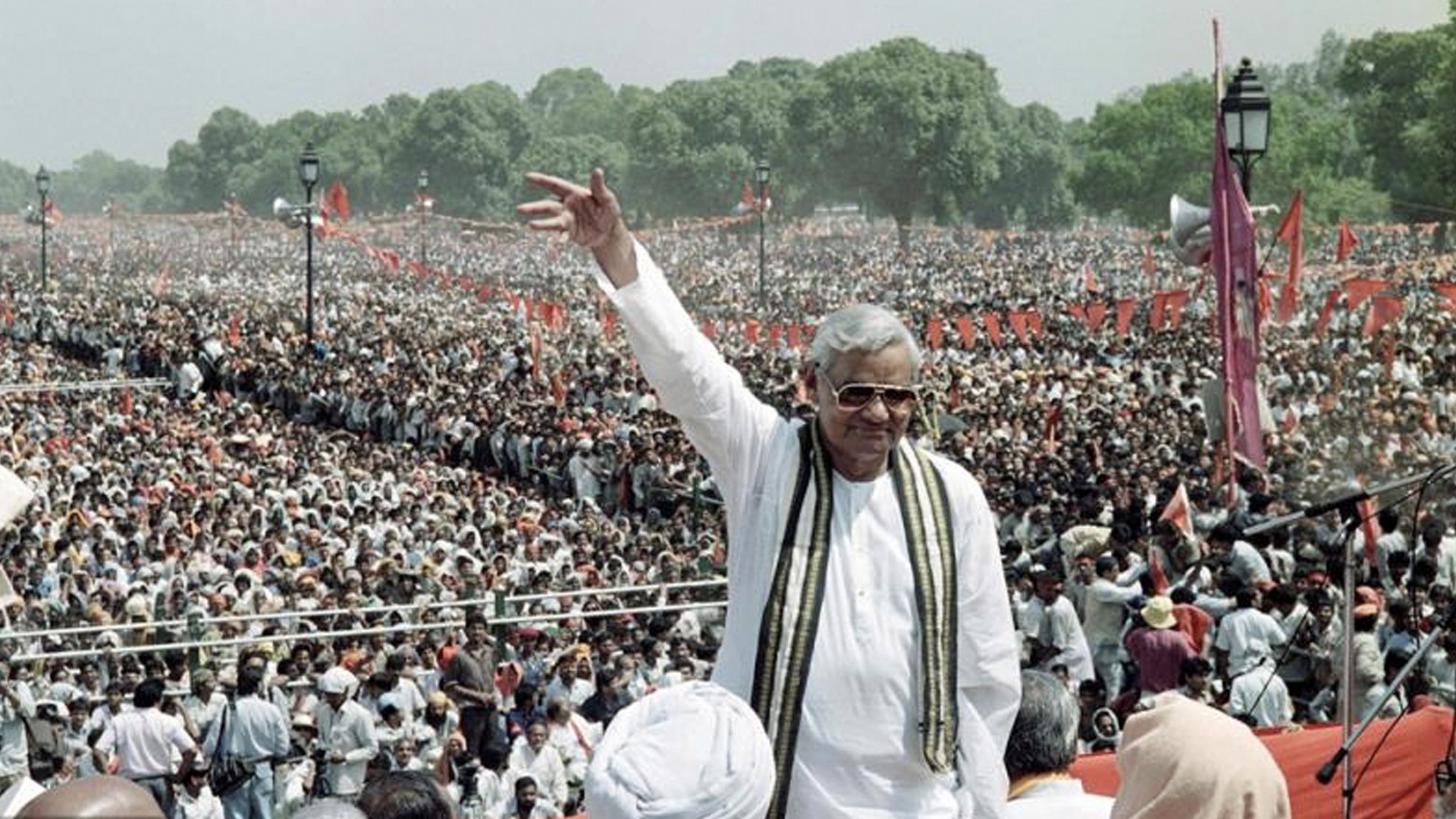
During his active political life, he was always seen as a great orator and had friends across party lines.
Outside of his political life, Vajpayee also worked as a journalist. He also served as India's external affairs minister from March 1977 to July 1979.
Vajpayee became a member of India's parliament for the first time in 1957. Thereafter, he was elected to both houses of Indian parliament, the Lok Sabha and Rajya Sabha, many times.
He had the distinction of being the only parliamentarian in the country to have been elected from four different states – northern state Uttar Pradesh, western state Gujarat, central state Madhya Pradesh and Delhi.
Ties with China during Vajpayee's term
In 1979, Vajpayee visited China for the first time as the Indian Foreign Minister.
Then he visited China in 2003 as India's prime minister and signed a declaration with the Chinese leader on principles for bilateral relationship and comprehensive cooperation.
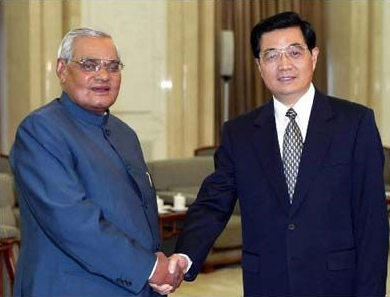
June 24, 2003: Chinese President Hu Jintao meets with Indian Prime Minister Atal Bihari Vajpayee in Beijing. /Xinhua Photo
June 24, 2003: Chinese President Hu Jintao meets with Indian Prime Minister Atal Bihari Vajpayee in Beijing. /Xinhua Photo
The last Indian leader before Vajpayee to visit China was Prime Minister P.V. Narasimha Rao in 1993.
The Declaration on Principles for Relations and Comprehensive Cooperation Between China and India marked a new stage of development for China-India relations.
In the declaration, the two countries reiterated their readiness to seek a fair, reasonable and mutually acceptable solution through consultations on an equal footing regarding the China-India boundary question.
In an interview with him by Xinhua News Agency during his visit, Vajpayee said that China and India need to do much more to fulfill the true potential of the partnership.
"In the search for a multi-polar world order, in fashioning pragmatic responses to the challenges of globalization, and in promoting a climate of peace, stability, and development in Asia and in the world," Vajpayee said.
He also stressed that China and India must strengthen their mutual understanding and develop together as good neighbors.
(With input from Xinhua News Agency.)

SITEMAP
Copyright © 2018 CGTN. Beijing ICP prepared NO.16065310-3
Copyright © 2018 CGTN. Beijing ICP prepared NO.16065310-3